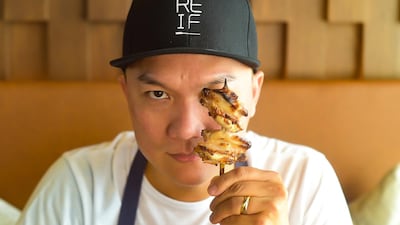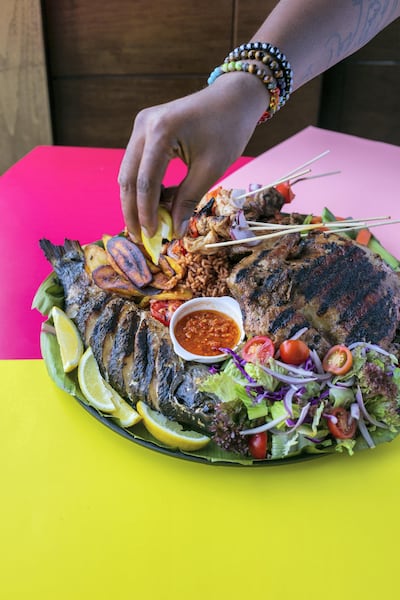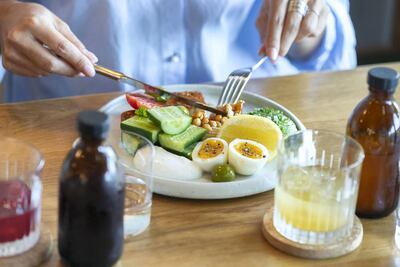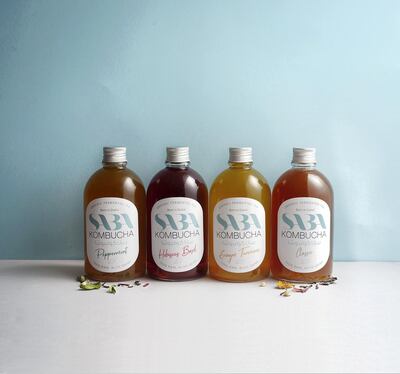This year was all about flavours from the Pacific Rim, Paleo-vegan options (also known as peganism) and seaweed snacks, but, just like the fashion world, the food industry promotes new trends each season. Here we take a look at what will be on tables across the UAE – and the world – in 2020.
1. West African cuisine
Ancient grains such as fonio, teff and millet are trending. "From indigenous superfoods to rich, earthy dishes, traditional West African flavours are popping up everywhere in food and in beverage," reads Whole Foods' report on food trends for 2020. "The 16 nations within West Africa share similar foods, but each have their own specialities, based on subtle influences from the Middle East and Western Europe."
_________________
Read more:
Three amazing African restaurants to try in the UAE
_________________
Roy McFarlane, co-founder of The Food Guys, a restaurant consultancy company in Dubai, agrees there will be a strong focus on cuisine from this region, adding there will also be a shift towards Korean and Filipino foods next year.
"Ingredients like moringa and tamarind will begin to feature heavily on shelves and menus," he says. It's good timing, then, for Catfish founder Gbemi Giwa, who just this week opened another venue in Dubai called The Gbemi's Kitchen, which offers a menu of West African soul food – from jollof to eguisi and suya.
2. A focus on sustainability
“Packaging is key,” says McFarlane. “Environmentally friendly packaging will be bigger than ever.” We’ve already seen that trend gaining ground in 2019, with restaurants and hotels upping their game when it comes to offering biodegradable products for dine-in and takeaway. This is only set to get more prevalent within the next year.
Lowe, in Dubai’s Koa Canvas, is one restaurant that’s put food waste and environmentally friendly packaging under the spotlight. Chefs Kate Christou and Jesse Blake have introduced a series of Waste Not dinners, for which they repurpose would-be food waste into an eight-course meal deserving of our dirhams.
“As the consumer gets more educated, I hope to see less plastic in supermarkets and packaging, less waste in buffets and less of a reliance on animal protein,” says Christou.
3. Transparency is key
Unsurprisingly, more and more people want to know exactly what they’re eating. This year, it’s all about customers “following the food from farm to plate, and understanding how their meals are being prepared and where the ingredients are coming from”, McFarlane adds.
Omar Shihab, general manager of DIFC restaurant Boca, says he, for one, is committed to shining a light on locally grown produce. "Fish and seafood demand has always been very focused on the common name varieties and we want to work with local fishermen to showcase some of the smaller and lesser-known types that are growing in the Arabian Gulf." That's why, in January 2020, the Mediterranean restaurant will introduce a weekly test kitchen programme that will host guests who are keen to try a set menu that focuses on these local, seasonal and smaller species.
Lowe’s Blake adds: “I think people will shift towards supporting local, from growers and producers, to home-grown concepts. There are so many great people in the food industry here doing interesting and exciting things and it would be great to see these people and places shine.”
4. Veganism continues to rise
While The Economist declared 2019 the "Year of Vegan", the trend shows no sign of slowing down in 2020, especially here in the UAE, where new plant-based venues and menus are launching all the time. Shihab says this is something Boca will continue to focus on as it's in line with the restaurant's sustainability focus. "We are trying to be more creative in sourcing and executing dishes with locally produced vegetables and aspire to have a large share of our current menu being plant-based," he says.
_________________
Read more:
_________________
Alex Stumpf, chef and co-owner of BB Social Dining in DIFC, has also seen an uptick in vegan and vegetarian requests. Thankfully, the restaurant already has plenty of plant-based options to offer diners with restricted dietary requirements. "Diners are more educated and know what they want," he tells The National, but does add that the Wagyu beef katsu still outsells every other dish on the menu.
5. Pop-up and indie concepts
Samantha Wood, founder of impartial restaurant review website www.foodiva.net, says we've "seen the rise of a pop-up culture with many chef collaborations and supper clubs now firmly on the calendar". In the last few weeks alone, for example, London's Michelin-starred restaurant Gymkhana hosted a pop-up at Armani Hotel Dubai, while in Abu Dhabi the English capital's The Little Viet Kitchen held a three-day event dedicated to Vietnamese cuisine in the Shangri-La Qaryat Al Beri. But the trend is more granular than that, Wood adds. "The days of Dubai being recognised only for celeb chef-helmed concepts and international restaurant chains are long gone. The dining scene is and will continue to mature next year with the rise of native talent and locally developed owner-operated concepts, from high-end licensed establishments to independent eateries.
“We will also see many more hotels lease out the majority of their food and beverage to experienced independent restaurateurs,” she adds. The fact that Izu Ani opened a new restaurant at Jumeirah Beach Hotel this month goes to show the opportunities available to local chefs are only set to grow.
6. All for affordability
It’s no surprise that diners across the UAE are looking for more reasonably priced offerings. Discounts and deals are one of the top requests venue managers receive. Customers want “a better-priced product that keeps health in check,” says McFarlane. Shihab reiterates this sentiment. “Dining out is not cheap in the UAE and with reduced disposable income … we notice guests constantly trying to score a bargain.
“Fast, convenient and good value – perhaps compromising healthy a bit – will continue to prevail as everyone struggles to find time to juggle work deadlines, family, health and personal relationships.”
It’s something that Reif Othman, chef-owner of Reif Japanese Kushiyaki at Dar Wasl Mall, considered when launching his new venue. “Consistency of food and price affordability are big decision-making factors now,” he says. “My goal with my new baby was to price our dishes so that diners can visit frequently, at least once a week, should they wish to.”
7. Not-so-simple sugars
As more foodies seek healthier options, a wider range of ingredients is becoming available across supermarkets. This year will see a rise in demand for alternative sweet options, reports Whole Foods. “For those seeking sweetness outside of the usual suspects like sugar, stevia, honey and maple syrup, there’s lots more to choose from for your cooking, baking and tea or coffee-stirring needs,” states the report. McFarlane says that we can expect “sugars from pomegranate, dates and other fruits will start to replace processed white sugars”.
Whole Foods says it has seen more spreads made from nuts and seeds hit international supermarket shelves, too. While seed butters were a thing this year, 2020 will produce all sorts of alternative options, from watermelon seed butter to pumpkin butter and even chickpea butters ("no, it's not a new name for hummus," the report states). "Many brands are looking to either eliminate the use of palm oil or promote a Roundtable on Sustainable Palm Oil certification and use nuts that are grown in ways with less likelihood for environmental impact," it adds.
8. The star ingredients
There are a few ingredients we've seen gain popularity across restaurant menus and supermarkets in the UAE. One is jackfruit, which, when marinated and baked, can resemble the consistency and flavour of pulled meat, making it a perfect alternative for vegan and vegetarian diners. Restaurants that currently utilise the ingredient include Soul Sante Cafe in Dubai Marina and Veganity in City Walk, and we've no doubt that more inventive dishes using the fruit will appear in the next year.
Next is kombucha. While the fermented tea drink, which boasts a range of health benefits, is not new in international beverage circles, we are seeing a rise in interest here in the UAE. Saba Kombucha, for example, is a new brand offering locally brewed drinks that are now available at Spinneys and Waitrose in both Dubai and Abu Dhabi.
Restaurants such as Lowe and Roots Bistro in Dubai, and Sanderson's in Abu Dhabi, already serve home-brewed varieties, but expect to see it regularly on menus across the country soon.





